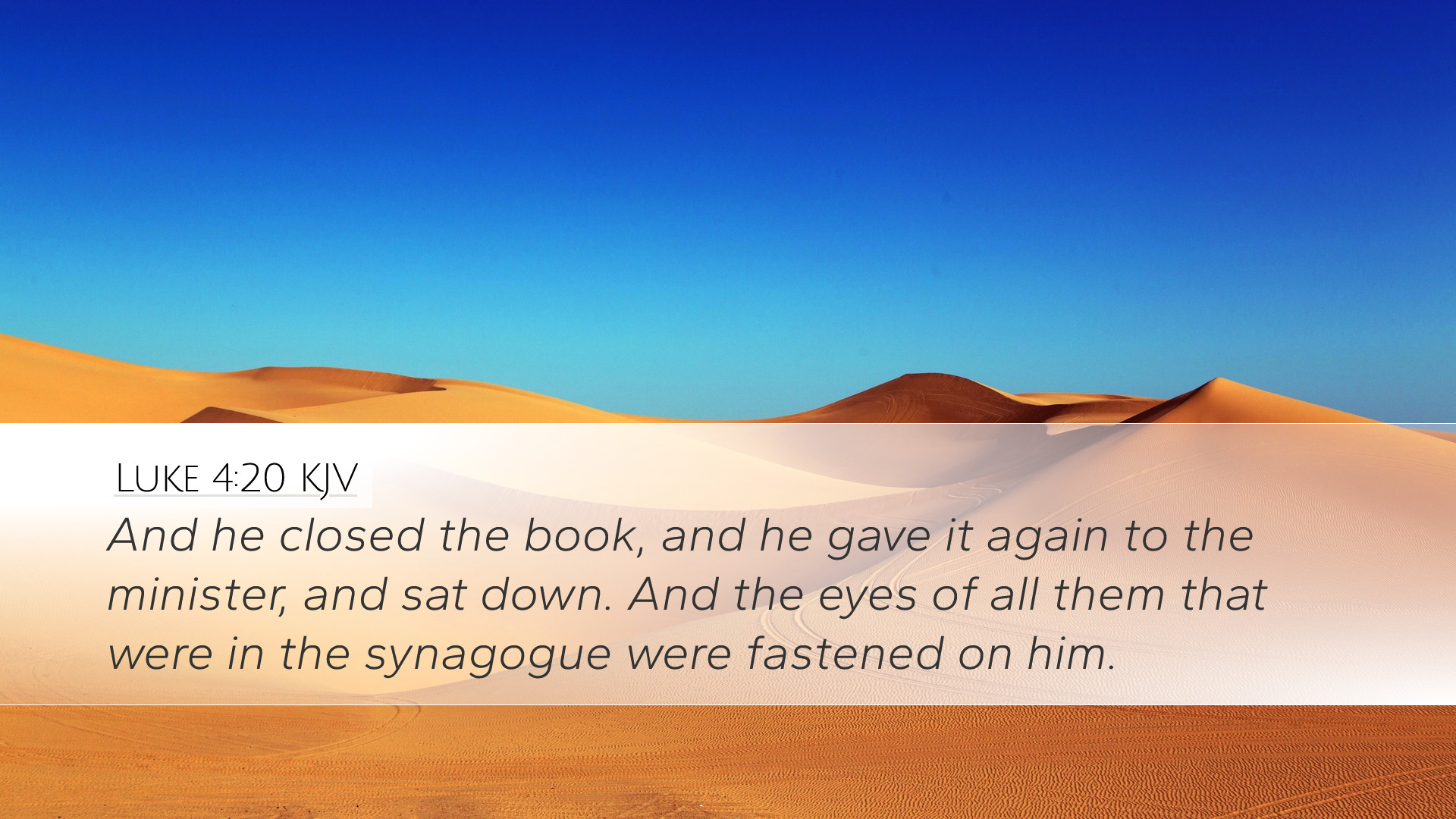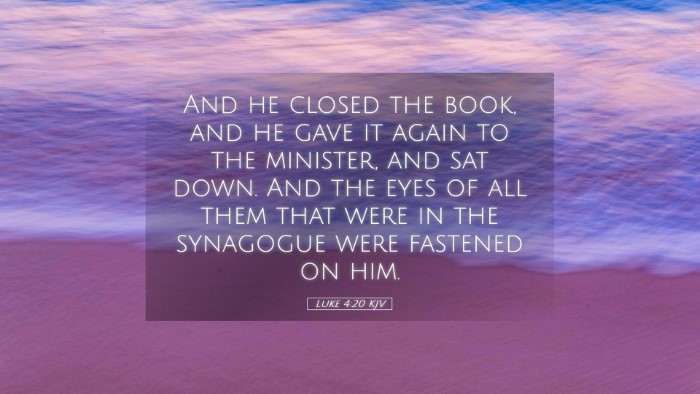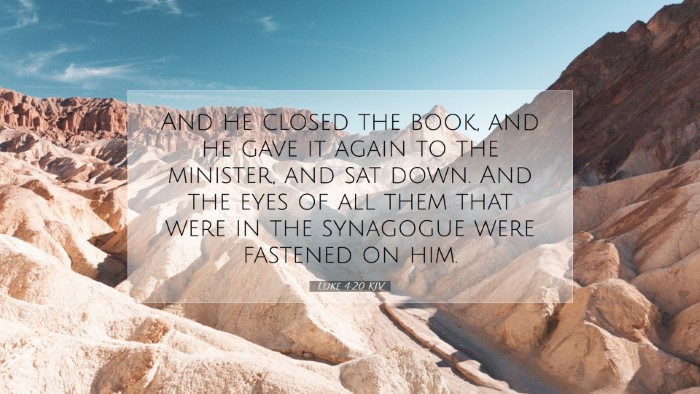Bible Commentary on Luke 4:20
The verse Luke 4:20 states: "And He closed the book, gave it back to the attendant and sat down; and the eyes of all who were in the synagogue were fixed on Him." This passage encapsulates a profound moment in the ministry of Jesus, marked by His public declaration of the fulfillment of Scripture.
Contextual Analysis
The context of Luke 4:20 is crucial for understanding its significance. Jesus had just read from the scroll of Isaiah (Isaiah 61:1-2), announcing His mission and purpose. This moment occurs early in His ministry as He returns to Nazareth, where He is known, and His words invoke a variety of reactions from those present. Matthew Henry highlights that the synagogue was a place for teaching and reflection, thus setting the stage for the profound impact of Jesus' reading.
The Act of Closing the Book
When Jesus "closed the book," it signifies the end of reading from the Scriptures, but it also represents the transition from prophecy to fulfillment. Albert Barnes notes that this action is weighty, indicative not merely of finishing a reading but of the authoritative proclamation that what Isaiah foretold was now realized in Him. This closing expresses the completeness of the revelation that Jesus is the anticipated Messiah.
Symbolic Significance
-
Finality of Prophecy: By closing the scroll, Jesus underscores the culmination of prophetic words, marking a new era in God's redemptive plan.
-
Encapsulation of His Mission: This moment encapsulates Jesus' mission to "preach the gospel to the poor" and "heal the brokenhearted," as initially recorded in Isaiah.
Response of the Congregation
The verse continues with the crowd's attention fixated on Jesus. Adam Clarke emphasizes the intensity of their gaze, which reflects both awe and curiosity. They were accustomed to hearing readings from the Scriptures, but Jesus' interpretation and subsequent silence invite deeper contemplation and connection to the fulfillment He represents.
Implications of Their Attention
-
Expectation: The crowd’s fixation illustrates their expectant hearts, perhaps anticipating a Messiah, indicating a theological readiness for revelation.
-
Sparking Controversy: This moment is a precursor to the controversy Jesus will face. Their attention leads to questions and eventual rejection, as His declaration of being the fulfillment of scripture challenges their preconceived notions.
Theological Reflections
Luke 4:20 invites a reflection on the authority of Christ and the nature of scriptural fulfillment. The act of returning the scroll emphasizes the continuity of God's Word, and the people's gaze serves as a symbolic manifestation of humanity's longing for divine truth and revelation.
Christ's Authority
-
Messianic Identity: Jesus ascribes to Himself the roles foretold in prophecy, highlighting His identity as the Messiah—the Anointed One designated to bring liberation and healing.
-
Call to Action: This moment also serves as a call for believers to fix their eyes on Jesus, the author and perfector of their faith, as the ultimate fulfillment of scripture.
Conclusion
Thus, Luke 4:20 encapsulates a pivotal moment in the ministry of Jesus, where He declares His mission and identity through the reading of Scripture, prompting both intrigue and challenge among His audience. The commentaries by Matthew Henry, Albert Barnes, and Adam Clarke together illuminate the profound implications of this text, encouraging pastors, students, theologians, and Bible scholars to explore the depth of Christ's fulfillment of prophecy and the call for meaningful engagement with the Scriptures.
This verse serves as a reminder of the transformative power of Scripture when it is recognized in its fulfillment through Christ. As we reflect on this moment, let us also consider how we respond to the Living Word and bear witness to His ongoing work in our lives and communities.


